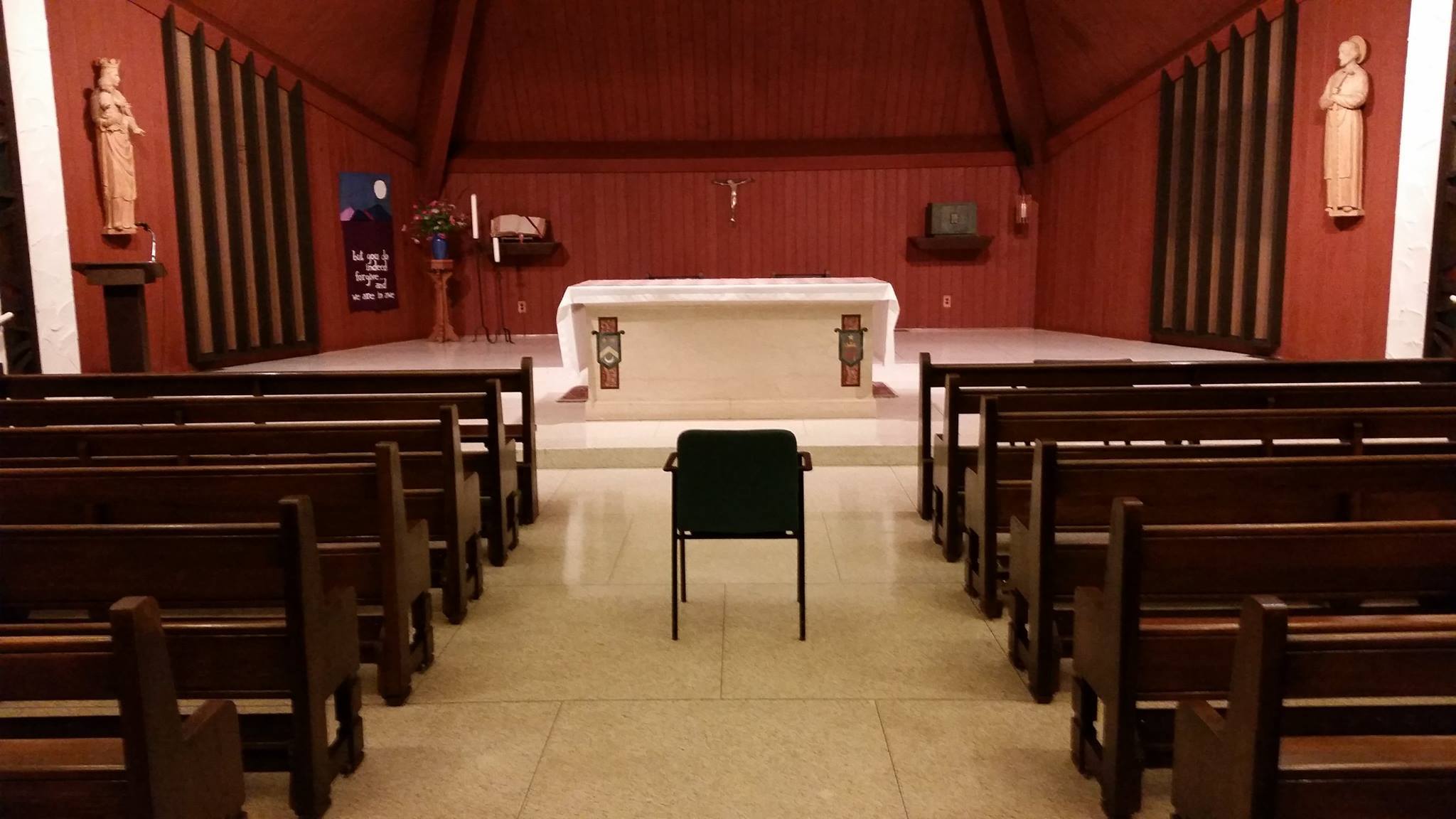This essay first appeared in our weekly Scripture reflection newsletter on January 10, 2025.
A few years ago, on an eight-day retreat at Linwood Spiritual Retreat Center in Rhinebeck, N.Y., a beautiful spot situated on a picturesque bend in the Hudson River, I had a surprising experience.
One evening, the retreat directors gathered the retreatants for a prayer service focused on healing, which included a practice that was novel for me. After meditating on several Gospel passages in which Jesus heals someone, followed by some silent prayer, we were asked to take a seat on a chair placed in the center aisle of the chapel, one by one. Then anyone who felt moved would come up and whisper in our ear a Gospel verse that they thought might help us. Then the seated person would relinquish the seat to the person who had shared the passage, and the process would continue.
Now, believe it or not, I’m a bit of a traditionalist, and my first thought was, “This sounds so cheesy!” But sometimes when a new spiritual practice seems off-putting, it might signal resistance to something new that God wants to show you. So, therefore, it’s something you might want to try.
For a day or two, as I imagined myself speaking to Jesus, nothing came in prayer.
At the time, I was struggling with hearing God’s voice on the retreat. It had been a dry few days, with not much discernible “fruit” in prayer and very little by way of emotions or insights. Earlier in the retreat, I had prayed over the passage in which Jesus asks the disciples, “Who do you say that I am?” And it was easy for me to answer who Jesus is for me: Son of God, Messiah, Savior, Brother, Friend.
My retreat director then turned the question on its ear. “Ask yourself,” she said, “Who are you to Jesus?” That was an interesting question indeed! But for a day or two, as I imagined myself speaking to Jesus, nothing came in prayer. I expected an answer like, “You’re a Jesuit priest who writes, and you should continue.” Or “You’re a Jesuit priest who should be working more with those on the margins.” After all this dryness, I was praying for some kind of definitive answer.
So, towards the middle of this evening prayer service, I took my seat and sat there until a woman came up, bent down, and whispered in my ear, “Know that you are God’s beloved son.”
Each of us—young or old, rich or poor, straight or LGBTQ—is deeply loved by God.
It hit me like a thunderbolt. It was so obvious: This was my identity before Jesus. Those few words jump-started my retreat and moved me to remember all the ways that God had blessed me in my life. And the great realization was that none of these blessings had anything to do with what I did, but rather were the result of my simply being. They were unwarranted. It was a deeply healing moment.
In today’s Gospel, Jesus hears those same words at his Baptism, but in a much different way. Jesus is the literal Son of God, with a relationship to the Father in prayer that is so deep that it can only be guessed at. But those words of confirmation—God’s beloved son, or daughter, or child—refer to each of us. And notice that at this point in Luke’s Gospel, before his public ministry has begun, Jesus hasn’t yet “done” anything special, in terms of preaching or performing miracles. Yes, he taught in the Temple as a boy, but mainly he’s been working as a carpenter in Nazareth. The Father loves Jesus deeply for who he is, not simply for what he does.
Each of us—young or old, rich or poor, straight or LGBTQ—is deeply loved by God. But sometimes it’s hard to recognize that and even harder to accept. One way of appreciating God’s love is coming to see how the blessings we’ve been given are freely given, gratuitous, and not in any way warranted or merited. That may mean spending an hour reflecting on your blessings in prayer, or even writing them down, so that you can really see them.
On this Feast of the Baptism of the Lord, I pray that everyone reading these words may at some point in their lives know that they are indeed God’s beloved child.




